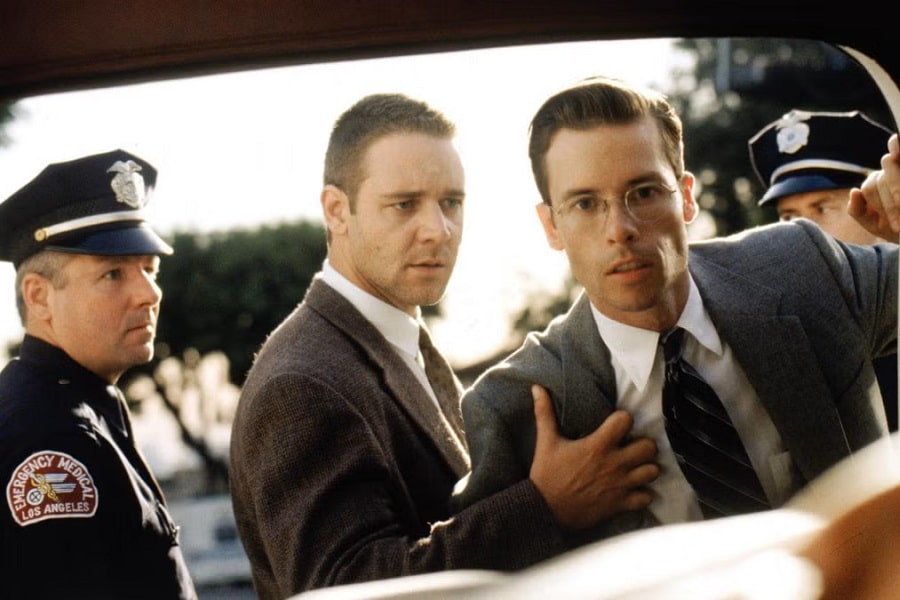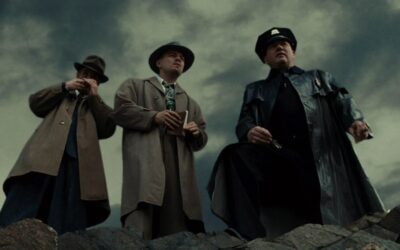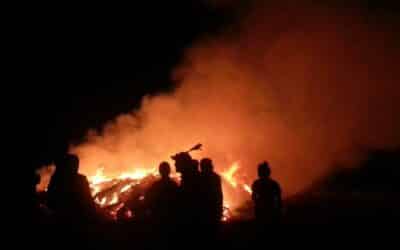
LA Crime
In the kaleidoscope of Los Angeles’ sprawling urban expanse, under the perpetual sunshine and amidst the sparkling allure of Hollywood, there has been no shortage of imaginative writers and filmmakers who have masterfully woven the city’s iconic locales into the fabric of crime fiction.
A mecca of dreams, where ambition meets desperation, Los Angeles is the living, breathing, ever-changing backdrop for narratives that sear into the consciousness. These tales, spun with grim details and yet tinged with an enigmatic allure, evoke a rich palette of emotions and provoke a yearning to explore the dark alleys and the illustrious, glittering corners of the city of angels.
As one embarks on a journey through LA’s iconic crime novels and their screen adaptations, a tapestry of passion, deceit, ambition, and redemption unfolds. Michael Connelly’s “Harry Bosch” series has been at the helm of this narrative tapestry, intertwining the city’s captivating allure with hard-hitting crime sagas. In the labyrinthine streets of Los Angeles, detective Hieronymus Bosch navigates through the dark underbelly, with the pulsating heart of the city resonating in each line of the narrative. With Connelly’s intricate plotting and deep character development, readers find themselves ensnared in the web of the city’s criminal underworld.
Bosch, a show spun from the fabric of Connelly’s narrative universe, gracefully transitions from page to screen, bringing forth an LA that is both grandeur and grit. This acclaimed television series manages to retain the charm of the novels, perfectly capturing the essence of Los Angeles, a city where dreams and nightmares coexist in a precarious balance.
Likewise, Raymond Chandler’s oeuvre, notably “The Big Sleep” and “Long Goodbye,” offers a peek into a Los Angeles of a different era. Chandler’s world, populated by hard-boiled detectives and femmes fatales, is a realm where LA’s glamour meets its grim realities. Through the sharp-eyed perspective of private investigator Philip Marlowe, Chandler paints a vivid picture of a city where the shimmering facade hides layers of complexity and moral ambiguity.
Hollywood, not missing a beat, embraced Chandler’s gritty vision with adaptations that resonate profoundly with the cinematic audience. Robert Altman’s adaptation of “The Long Goodbye” showcases a 1970s Los Angeles pulsating with life, where the mellow tones and dynamic visuals capture a city that is as beguiling as it is menacing. With the protagonist sauntering through the narrative, audience members find themselves oscillating between intrigue and admiration for Marlowe’s nonchalant resilience in face of adversity.
On the same note, James Ellroy, the master of noir fiction, offers an unflinching look at Los Angeles in his “LA Quartet” series, where the city itself emerges as a character, dark and foreboding. In “The Black Dahlia” and “LA Confidential,” Ellroy delves deep into the city’s infamous crime histories, with narratives steeped in intrigue and an astute exploration of human motivations. Hollywood couldn’t resist the magnetic pull of Ellroy’s prose, leading to the screen birth of “LA Confidential,” a film that encapsulates the grim allure of 1950s Los Angeles with an ensemble cast that brings to life the intricate web of corruption and redemption explored in the novel.
Navigating through these narratives, one cannot overlook the seminal work “Devil in a Blue Dress” by Walter Mosley. This piece introduces readers to Ezekiel “Easy” Rawlins, a reluctant detective navigating the racially charged landscape of post-war Los Angeles. Mosley crafts a narrative that is as much about the crimes as it is about the socio-political backdrop of the time. When adapted to the screen, the potent narrative found a new dimension, illustrating the vibrant yet harsh realities of a bygone era, marked by racial tensions and economic disparities.
Yet, the exploration of Los Angeles through the lens of crime fiction would be incomplete without a nod to the mesmerizingly complex universe created by David Lynch in “Mulholland Drive.” This narrative, twisted and surreal, takes the audience on a journey where the lines between dreams and reality blur, offering a commentary on the nebulous nature of Hollywood’s allure. Here, Los Angeles transforms into a dreamscape, where the glittering lights hide secrets that are both alluring and unsettling.
As the journey winds through pages and screens, one observes the transformation of Los Angeles, a city that shape-shifts with each narrative, revealing facets that are as enchanting as they are dark. It is a place where the glitz of Hollywood Boulevard can easily give way to the grim realities of life, where the sun-kissed beaches hold stories of passion and betrayal.
Through the lens of crime fiction, Los Angeles emerges as a rich tapestry, a narrative woven with threads of gold and shadow. From the sunshine noir of Michael Connelly to the gritty streets depicted by Raymond Chandler, the city unveils itself as a character, vibrant and volatile, holding secrets in its palm, ready to unfold for those willing to venture into its labyrinthine paths.
The journey through iconic LA crime novels and their screen adaptations is a testament to the city’s multifaceted personality, a witness to its ability to inspire narratives that strike a chord with audiences across mediums. As the curtain falls, the city stands resilient, a beacon of dreams and dramas, ready to inspire a new wave of tales that plunge into its depths, exploring the many hues of human experiences against the vibrant canvas that is Los Angeles.
In the realm of fiction, Los Angeles has indeed proven to be a fertile ground for stories that resonate with a gritty romance, where the city’s glittering façade and dark corners come together to form narratives that are both enthralling and hauntingly beautiful. It beckons storytellers and audiences alike, inviting them to lose themselves in its narratives, where the boundaries between reality and fiction blur, offering a rich, immersive experience that is quintessentially LA.
More Crime Features
Literary Crime
Where Depth Meets Deceit
Australian Crime
Shadows of the Outback
Criminal Fashion
Iconic Outfits and Styles in Crime Fiction



